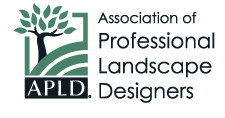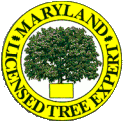Ecology
Greener Gardens is committed to gardening with a conscience, paying special attention to our locally sensitive environment, the Chesapeake Bay. We strive to find ways t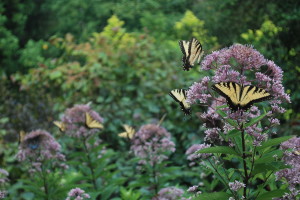 o effectively control garden pests while minimizing risks to the environment and to human health. This is why we offer an Integrated Pest Management (IPM) service. Integrated Pest Management (IPM) is being encouraged by the Maryland Extension Service as a sustainable way to prevent and control pests while enhancing the overall health of your garden. IPM manages pests by containing the use of physical, cultural, biological, and chemical strategies to control pest populations. It is a method of pest control that is designed to prevent devastating infestations not just treat them. IPM does not rely strictly on chemical pesticide applications because they eliminate beneficial organisms and pollute the environment.
o effectively control garden pests while minimizing risks to the environment and to human health. This is why we offer an Integrated Pest Management (IPM) service. Integrated Pest Management (IPM) is being encouraged by the Maryland Extension Service as a sustainable way to prevent and control pests while enhancing the overall health of your garden. IPM manages pests by containing the use of physical, cultural, biological, and chemical strategies to control pest populations. It is a method of pest control that is designed to prevent devastating infestations not just treat them. IPM does not rely strictly on chemical pesticide applications because they eliminate beneficial organisms and pollute the environment.
Studies by Experiment Station and Extension Service entomologists have shown that scheduled preventative or cover spraying is not the most effective or environmentally sound method for controlling insect and mite pests of landscape plants. The best method is integrated pest management.
— Landscape IPM; Maryland Cooperative Extension, Bulletin 350
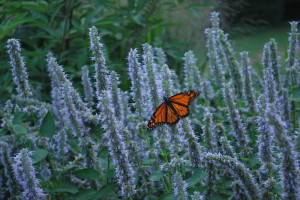 When we design a garden, physical aspects of pest control are considered. We use specifically selected pest-resistant plants and make sure they are placed in the most suitable location in order to reduce environmental stress. Maintenance and cultural controls are also important. When a plant or garden is properly watered and healthy, therefore not stressed, pests have a much harder time getting established. If an infestation does occur, which can happen even under the best circumstances, chemicals are not our first choice. Our Bay-friendly options will lessen or eliminate the impact of pesticides on your health and the environment.
When we design a garden, physical aspects of pest control are considered. We use specifically selected pest-resistant plants and make sure they are placed in the most suitable location in order to reduce environmental stress. Maintenance and cultural controls are also important. When a plant or garden is properly watered and healthy, therefore not stressed, pests have a much harder time getting established. If an infestation does occur, which can happen even under the best circumstances, chemicals are not our first choice. Our Bay-friendly options will lessen or eliminate the impact of pesticides on your health and the environment.
Example of how IPM works in aphid control:
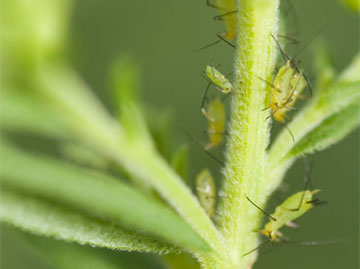

A common garden pest is the aphid. An IPM approach to controlling aphids could include releasing a beneficial aphid predator such as the ladybug, physically removing the aphids with water from a high-pressure hose, or spraying a natural insecticidal soap. If populations reach a threshold where severe damage is imminent, chemical pesticides may still be used but only as a last resort or in combination with other natural methods.
Every landscape is different and has a specific balance of insects, pathogens, and environmental conditions. Our five-step IPM service includes site evaluation/inspection, monitoring and implementing a personalized IPM program for your garden. You wouldn’t want your doctor to treat you the same as everyone else that came into the office! We know insects and pathogens are a part of the landscape and IPM is a proven method of sustainable pest control. Greener Gardens chooses IPM because we are dedicated to using only the best horticultural techniques available and want to ensure the success, beauty and health of your garden for years to come, with a commitment to a healthy environment.


